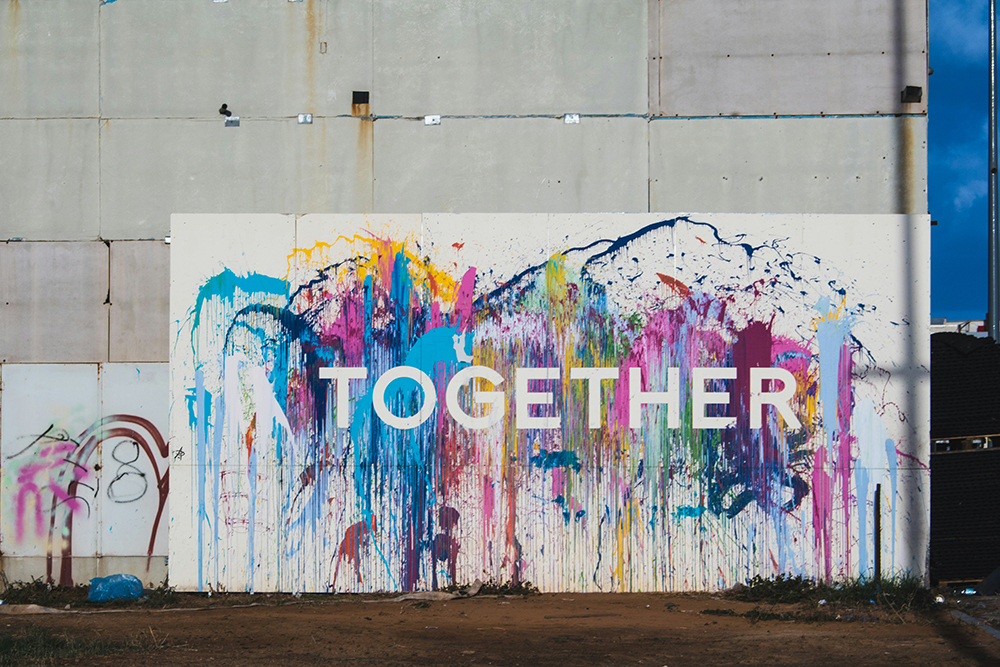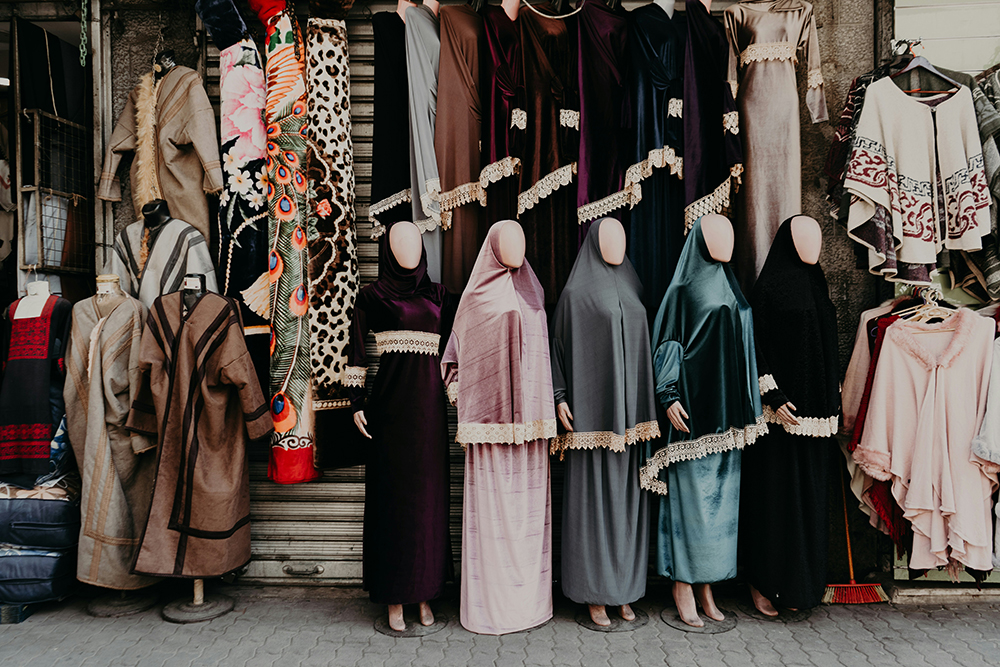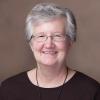
(Unsplash/Nicole Baster)
At our Provincial Chapter in 2023, our community unanimously passed a corporate stance on "From Othering to Reverencing All" — all persons and all God's creation.
From the beginning of this process, we emphasized that even though this is a corporate stance of the province, the goal is for each individual sister to become aware of moments when she is othering another person or God’s creation and to stop herself before acting in a way that would be harmful to another person or creation.
My personal awareness of "othering" another hit me hard one day while at my ministry in 2006, when the events of Sept. 11, 2001, and its aftermath were still very fresh in our minds. I was working in an outpatient diabetes management center connected to a hospital. On the way to and from work each day, I passed the skyline of New York City and the area where the Twin Towers used to stand. At lunch that day, I read a story in the newspaper about how a woman suicide bomber in Afghanistan had hidden explosives under her burqa, went to a wedding celebration, and killed herself and many of the wedding guests.
Advertisement
My next patient was a new patient. When I went out to meet her, she was dressed from head to toe in her burqa and wearing a hijab, her religious dress as a Muslim woman. I could almost taste my fear. I remember thinking she could easily blow up the whole hospital, and I found myself frequently backing away from her during our first appointment together.
While driving home from work that day, I thought about this incident and my fear of this woman solely based on how she was dressed. At one point, I pounded the steering wheel and said aloud, "God, I don't want to be this way!" I did not want to dislike, or perhaps even worse, fear someone solely based on their appearance. Yet, my stomach told me my fear of this woman was real. I knew I was scheduled to see her several times during the next few weeks.
I went to the chapel that evening and talked to God. My fear was genuine, and I begged God to show me what to do. I kept repeating to myself and to God, "I do not want to be this way." I sat there for a long time, and as I was leaving the chapel, I thought, Maryann, just talk to her.
The day she came in for her next appointment, I weighed her, and we both went to my office and sat down. Once seated, the first thing I said to her was, "I don't think I’ve ever met anyone from Palestine before." That was all it took! With those words, I saw her as a person, just like me, made by the same God. We sat and talked about her family, home, and country.

(Unsplash/Jude Al Safadi)
Over the course of several months, we became friends, and she would often stop by the office when in the area. We spoke of our families, community life as a Catholic sister, our religious practices and our faith in God. This encounter was a life lesson for me. Even today, almost 20 years later, I think of her and her family and silently utter a prayer whenever I hear news about Palestine. This experience taught me the power of humility and empathy in overcoming "othering" and fostering some understanding of those I feel are different from me.
I believe we can all think of times when we feared, disliked, or "othered" another sister, a coworker, or another human being based on what they were or were not wearing, the color of their skin, where they were born, their politics, the tone of their voice, a disability or whether they moved too fast or too slow in the food line.
Othering perceives or portrays someone as fundamentally different — "not one of us." It is treating people from another group as less human than one's own group or one person or group feeling they are better than another person or group. The process of othering can be seen in many different situations. Whenever we highlight a person's differences, we risk treating that person differently or as "other." Once we go down the road of othering another person or a group, we are not far from doing or allowing all kinds of terrible things to each other.
Once we go down the road of othering another person or a group, we are not far from doing or allowing all kinds of terrible things to each other.
In my experience with the woman from Palestine, fear of someone because of what she was wearing limited her humanity and my own, based on my limited, preconceived, and, until then, unexamined ideas. I know I would be an entirely different person if I had continued to put her in a box and limited her — and my own — humanity.
Fear, biases, or whatever causes us to dehumanize another impedes our union with God whenever we see the color of skin, nationality or disability rather than a person just like us, made in God's image and likeness. With our corporate stance, we include God's creation and hope that each of us will be aware of any time we set ourselves above and beyond who or what is in front of us and thus permit ourselves to harm the animate and inanimate world around us.
As Pope Francis states in Fratelli tutti, "there is a problem when doubts and fears condition our way of thinking and acting to the point of making us intolerant, closed and perhaps even — without realizing it — racist. In this way, fear deprives us of the desire and the ability to encounter the other" (41).





